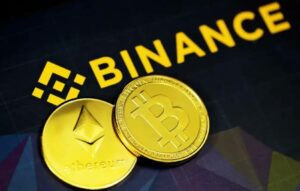
VivoPower International PLC has completed a dramatic transformation from a failing renewable energy company to what it claims will be “the world’s first XRP-focused digital asset enterprise,” raising questions about corporate governance and opportunistic market timing.
The NASDAQ-listed company announced it raised $121 million in a private placement to purchase $100 million worth of XRP cryptocurrency, marking a complete departure from its original sustainable energy mission. The move comes as the company faces financial distress and follows a pattern of struggling companies pivoting to trending sectors during market booms.
Financial Collapse Preceded Crypto Pivot
VivoPower’s crypto strategy emerges from a position of financial weakness evidenced by its cash position. As of June 30, 2024, VivoPower held only $0.8 million in cash reserves, also reported an adjusted EBITDA loss of $5.9 million from continuing operations. This after a loss of 5.7 million in the 2023 financial year.
Complete Business Model Abandonment
VivoPower was originally founded in 2014 and has operated as “an award-winning global sustainable energy solutions B Corporation company” with two primary business units: Tembo, focused on electric solutions for fleet applications, and Caret Digital, a power-to-x business focused on renewable power applications including digital asset mining. The company now plans to accelerate the spin-offs of both Tembo and Caret Digital subsidiaries by the third quarter of 2025. This represents an abandonment of its renewable energy mission in favor of what the company describes as “acquisition, management, and long-term holding of XRP digital assets as part of a diversified digital treasury strategy .
The XRP Investment Strategy
The $121 million private placement was priced at $6.05 per share, above the last market closing price of $6.04. The funding round was led by Saudi Prince Abdulaziz bin Turki Abdulaziz Al Saud, who invested $100 million through Eleventh Holding Company.
VivoPower has partnered with BitGo as an exclusive over-the-counter trading desk to acquire the initial $100 million worth of XRP tokens. The company will use BitGo for both trading XRP holdings through their 24/7/365 OTC trading desk and custody services through BitGo’s platform.
Market Reaction and Timing Concerns
VivoPower shares surged as much as 26% following the crypto announcement before giving back some gains, ultimately stabilizing with an 11% gain around $6.75 . Notably, XRP itself declined 2% to $2.29 despite the announcement, trading below key resistance levels. At the time of writing the VivoPower price has fallen to $4.30
VivoPower’s choice of XRP as its primary treasury asset comes with regulatory risks. While a July 2023 federal court ruling found that XRP is not a security when sold to retail investors on exchanges, the SEC has appealed this decision. The court did rule in favor of the SEC regarding $728 million in institutional sales, finding these constituted unregistered securities offerings. The ongoing legal uncertainty creates compliance challenges for corporate XRP holders. The SEC’s appeal means the regulatory status of XRP remains unsettled, potentially exposing corporate treasuries to future enforcement actions.
Contrast with Established Corporate Crypto Strategies
VivoPower’s approach differs markedly from established corporate cryptocurrency strategies. MicroStrategy (now Strategy), the largest corporate holder of Bitcoin, has accumulated 528,185 BTC worth approximately $42.9 billion while at the same time maintaining its core software business. Other companies like Marathon Digital Holdings (48,237 BTC) and Riot Platforms (19,211 BTC) have built their crypto treasuries while continuing their primary mining operations. Unlike Bitcoin mining companies that can claim energy-related synergies, XRP requires no mining infrastructure and has no connection to renewable energy applications. This makes VivoPower’s pivot a complete departure from any energy-related business rationale.
Corporate Governance Implications
The transformation raises questions about corporate governance and shareholder protection. VivoPower’s executive chairman Kevin Chin has provided little insights into the rationale for the move, saying “We are incredibly privileged to have His Royal Highness, Prince Abdulaziz bin Turki Abdulaziz Al Saud of Saudi Arabia leading this transformational capital raising”. The Prince’s comments on the investment don’t offer any additional depth – stating; “After reviewing a number of listed vehicles seeking to embrace a digital asset treasury model, we selected VivoPower given its strategic focus on XRP and its objective to contribute to building out of the XRPL ecosystem.” This statement is confusing given that prior to the capital raise VivoPower had no focus on XRP and appears to be no position to contribute to building out the XRPL ecosytem. Essentially, shareholders who originally invested in a renewable energy company now own shares in what is essentially a crypto investment vehicle.
Risk Factors and Market Context
VivoPower’s strategy introduces several risk factors uncommon in traditional corporate treasury management:
Concentration Risk: The company is committing $100 million—roughly 83% of its raised capital—to a single cryptocurrency, representing extreme portfolio concentration.
Volatility Risk: Cryptocurrency markets are notably more volatile than traditional treasury assets.
Operational Risk: VivoPower’s reliance on BitGo for trading and custody indicates the company lacks internal capabilities to manage crypto assets independently.
Regulatory Risk: Beyond XRP-specific issues, the broader cryptocurrency regulatory environment remains in flux, with potential impacts on corporate holders.
Looking Forward
VivoPower’s transformation from renewable energy company to crypto treasury vehicle represents a dramatic corporate pivot in recent market history. The company’s executives argue this positions them at the forefront of digital asset adoption, while critics question whether this represents sound corporate strategy or opportunistic market timing.
The success or failure of VivoPower’s XRP gamble will likely influence how other struggling companies view cryptocurrency pivots as a survival strategy. For now, the company has successfully raised significant capital and positioned itself as a pure-play XRP investment vehicle, though the ultimate value creation for shareholders remains to be seen and will be dependent on the expertise of Ripple Labs and Bitgo as opposed to anything VivoPower may or may not do.


 4 hours ago
3
4 hours ago
3 










 Bengali (Bangladesh) ·
Bengali (Bangladesh) ·  English (United States) ·
English (United States) ·